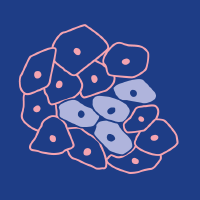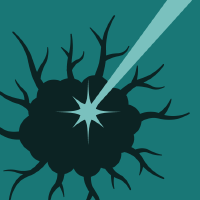Topic Menu
► Topic MenuTopic Editors



Targeting Tumor Microvasculature of Malignant Metastatic Tumor
Topic Information
Dear Colleagues,
The formation of the blood supply system is an important step in the cancerous transformation of cells, resulting in the penetration of tumor cells into the neighboring tissues and metastatic growth. Significant progress in the elucidation of mechanisms underlying tumor angiogenesis, along with the discovery of a great diversity of biomolecules involved in its regulation, have culminated in the development of a radically novel approach to antitumor therapy based on the search for effective inhibitors of tumor angiogenesis. Angiogenesis inhibitors target the neovascular development that is hypothesized as triggering tumor growth. The inhibitors that are involved in the search for the anti-angiogenesis process can be divided into five categories, based on their target activity: 1) drugs that block matrix breakdown; 2) drugs that inhibit endothelial cells directly; 3) drugs that block angiogenesis activators; 4) drugs that inhibit endothelial cell integrins or survival signaling; and 5) drugs with a currently unknown mechanism of action. In recent years, a great deal of research has been focused on the search for novel anti angiogenic drugs in the area of endogenous peptides, small organic molecules, microRNAs, cytotoxic molecules and so on. In this vein, we welcome original research, cutting-edge reviews and clinical trials. These should related, but not limited, to the aspects of the field listed: identification of small molecules, endogenous peptides, small organic molecules, microRNAs, cytotoxic molecules, antibody-drug conjugates, synergistic combination therapy, synthetic and natural biomolecules, nanoparticles and repurposing drugs, etc., against regulation of tumor angiogenesis and metastasis towards the identification of new anti-angiogenic drugs.
Dr. Prabhu Thirusangu
Dr. Vigneshwaran Vellingiri
Dr. Prabhakar Thippegowda
Topic Editors
Keywords
- anti-angiogenesis
- tumor vasculature
- metastasis
- VEGF
- angiogenesis inhibitors
- anti-cancer
Participating Journals
| Journal Name | Impact Factor | CiteScore | Launched Year | First Decision (median) | APC | |
|---|---|---|---|---|---|---|

Cancers
|
4.5 | 8.0 | 2009 | 16.3 Days | CHF 2900 | Submit |

Current Oncology
|
2.8 | 3.3 | 1994 | 17.6 Days | CHF 2200 | Submit |

Journal of Clinical Medicine
|
3.0 | 5.7 | 2012 | 17.3 Days | CHF 2600 | Submit |

Journal of Personalized Medicine
|
3.0 | 4.1 | 2011 | 16.7 Days | CHF 2600 | Submit |

Onco
|
- | - | 2021 | 19 Days | CHF 1000 | Submit |

MDPI Topics is cooperating with Preprints.org and has built a direct connection between MDPI journals and Preprints.org. Authors are encouraged to enjoy the benefits by posting a preprint at Preprints.org prior to publication:
- Immediately share your ideas ahead of publication and establish your research priority;
- Protect your idea from being stolen with this time-stamped preprint article;
- Enhance the exposure and impact of your research;
- Receive feedback from your peers in advance;
- Have it indexed in Web of Science (Preprint Citation Index), Google Scholar, Crossref, SHARE, PrePubMed, Scilit and Europe PMC.

